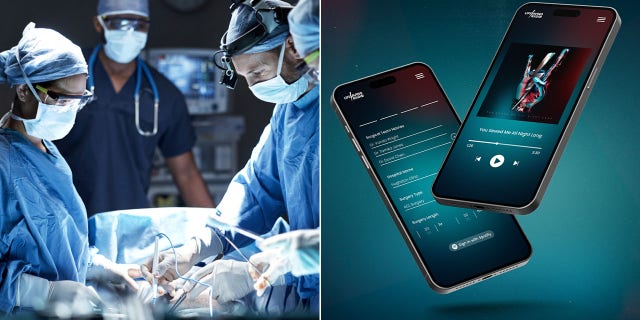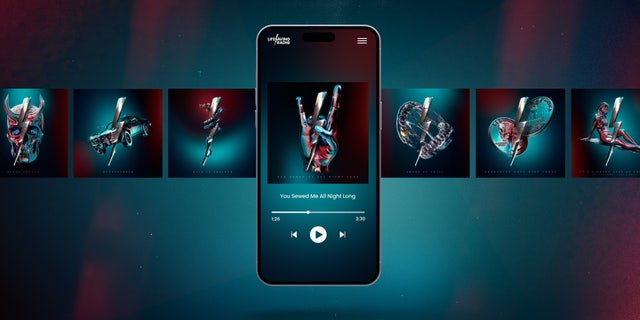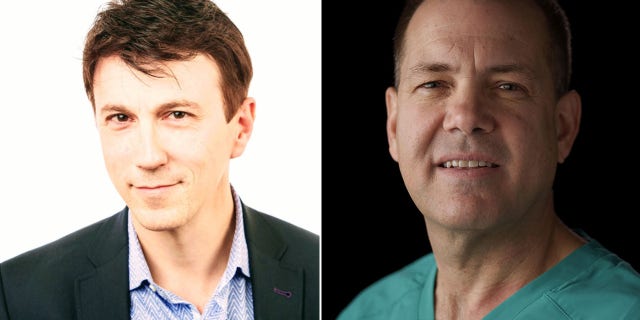Music has long been shown to enhance athletic performance, whether that performance is on an NFL field or a treadmill at the gym.
And now, with the help of artificial intelligence, music is helping surgeons achieve better results in the operating room.
Backed by scientific studies, NextMed Health — in collaboration with the data science company Klick Health — has created the world’s first AI-based health care radio station called Lifesaving Radio.
It features more than 30 hours of hard rock music that’s been carefully curated for peak surgical performance.

NextMed Health — in collaboration with the data science company Klick Health — has created the world’s first AI-based health care radio station called Lifesaving Radio. (iStock/NextMed Health/Klick Health)
“The Lifesaving Radio project is a great example of the convergence of different technology sets to improve elements of health care,” Kraft said in an interview with Fox News Digital.
Science behind the surgical soundtrack
In a 2022 study published in Langenbeck’s Archives of Surgery, a group of German researchers investigated the effect of playing different types of music — hard rock by AC/DC and soft rock by The Beatles — while medical students performed four tasks related to laparoscopic surgery.
The study was conducted at the University Hospital Dresden between March and June 2017.
When the hard rock was played at a medium volume, the participants performed faster while maintaining accuracy, the researchers found.
Even as technology’s role continues to grow in the medical space, Kraft pointed out that health care is still a physical profession. The doctors still need to do the procedures in the operating room.
“We all know that humans are not perfect machines,” he said. “They might be tired or grumpy. They might be understaffed.”
He continued, “In surgery, we experience this when our hands seem to move deftly with no wasted movement. Needles travel exactly where we want them to go, and it feels almost as if we’re watching ourselves operate with a tremendous sense of satisfaction.”

Lifesaving Radio (a song sample is shown here) is powered by Spotify’s new “AI DJ” music analytics technology, which uses generative AI through the use of OpenAI technology. (NextMed Health/Klick Health)
Music may be one way to help them enter that state of “flow,” Kraft said.
“There have been many examples where music can impact the flow state or the ability to perform complex cognitive tasks, which is what a surgeon and a surgical team are doing,” he explained.
Lifesaving Radio features its own DJ, named AI Angus, who personalizes the radio station by calling out the names of the surgeon and team members before playing music that has been “clinically validated to improve the precision and speed of certain sorts of procedures,” Kraft said.

Dr. Daniel Kraft (left), a physician and scientist in Stanford, California, launched NextMed Health in 2011. Dr. Rafael Grossmann (right), a surgeon in Portsmouth, New Hampshire, was among the first to use Lifesaving Radio in his operating room. (NextMed Health/Klick Health)
Some of the tracks include “You Sewed Me All Night Long,” “Back is Cracked” and “It’s a Short Stop at the Doc (If You Wanna Chop a Mole).”
“In building this, it was a combination of understanding what seems to improve surgical performance, having a core album from AC/DC with the right tempo rhythm, and then looking at other songs from the Spotify database that had similar qualities,” Kraft explained.
Lifesaving Radio in action
In March, Lifesaving Radio was previewed to hundreds of clinicians, scientists, patients and public health experts at NextMed Health’s annual conference in San Diego, California.
“I thought the idea was phenomenal, given that music has been proven to improve the flow, the dynamic and the choreography of the surgical act,” Grossmann told Fox News Digital.
“What we really want in the operating room is a sort of harmony, a sort of focused stress,” he continued. “Everything has to be perfect. You want the patient to be the center of attention.”
He also said, “I think this music helps you get in that zone where you can achieve what you want to achieve — which is getting the patient better.”
“We’re hopeful that Lifesaving Radio will be used in operating rooms around the world to improve outcomes in the experience for clinicians and patients,” he said.
CLICK HERE TO SIGN UP FOR OUR HEALTH NEWSLETTER
Looking ahead, Kraft hopes the technology can also be rolled out on a wider scale, with different types of music being used in different disciplines.
“In my imagination, Lifesaving Radio really goes beyond the operating room and possibly into other clinical settings, where music becomes an impactful part of health and medicine.”

